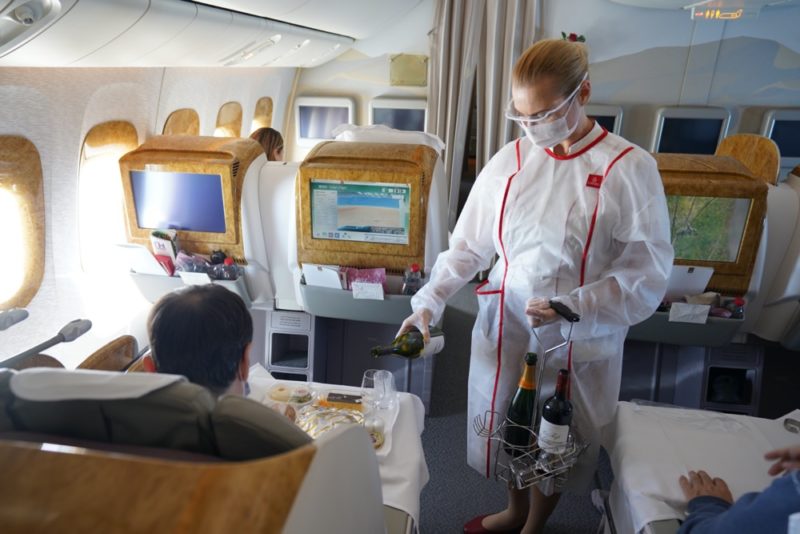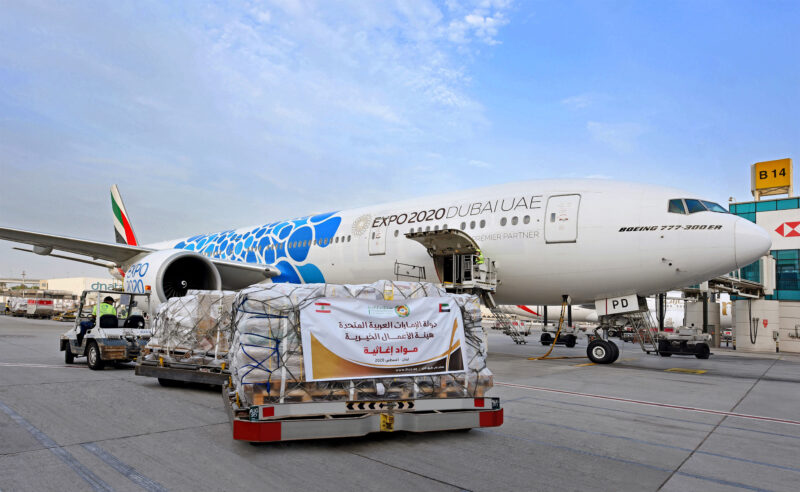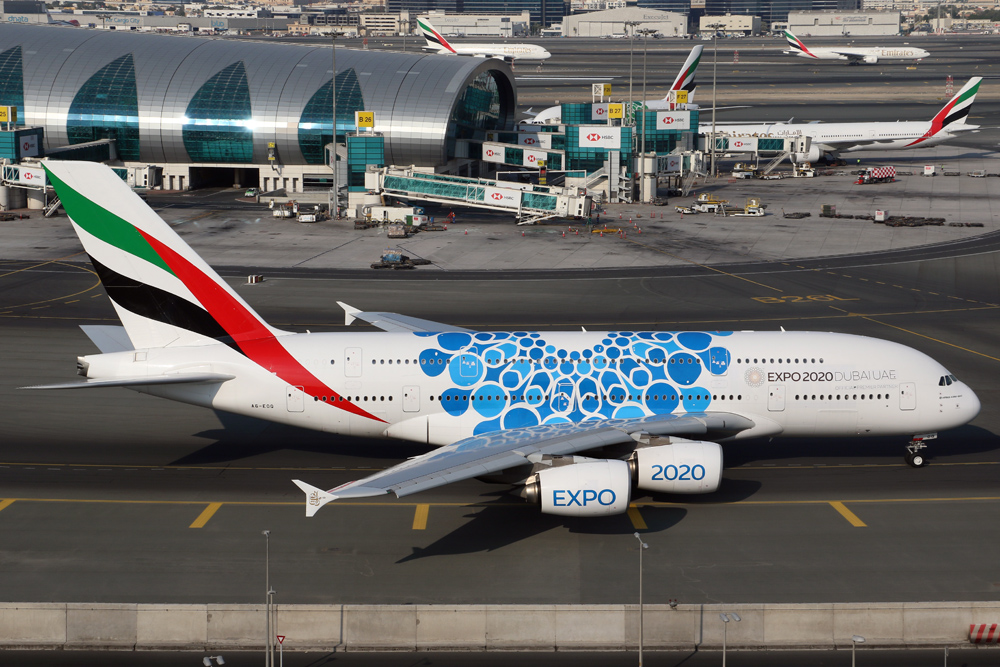The Emirates Group today announced their half-year results for their 2020-21 (From 1st April to 30th September) financial year.
The Group is reporting a 2020-21 half-year net loss of AED 14.1 billion ($3.8 billion).
- Group: Revenue down 74% to AED 13.7 billion ($3.7 billion) and a loss of AED 14.1 billion ($3.8 billion) after last year's profit of AED 1.2 billion ($320 million). Results significantly impacted by unprecedented flight and travel restrictions worldwide, due to the COVID-19 pandemic
- Emirates: Revenue down 75% to AED 11.7 billion ($3.2 billion) and a loss of AED 12.6 billion ($3.4 billion) after a half-year profit of AED 862 million ($235 million) for the same period last year. Revenue mainly supported by strong cargo business
- dnata: Revenue down 67% to AED 2.4 billion ($644 million) and a loss of AED 1.5 billion ($396 million) after last year's profit of AED 311 million ($85 million), reflecting the impact of COVID-19 across all dnata business units globally. The loss includes impairment charges of AED 689 million ($188 million)
The Group's cash position on 30th September 2020 stood at AED 20.7 billion ($5.6 billion), compared to AED 25.6 billion ($7.0 billion) as at 31st March 2020.
His Highness (HH) Sheikh Ahmed bin Saeed Al Maktoum, Chairman and Chief Executive of Emirates Airline and Group, said: "We began our current financial year amid a global lockdown, when air passenger traffic was at a literal standstill".
“In this unprecedented situation for the aviation and travel industry, the Emirates Group recorded a half-year loss for the first time in over 30 years. As passenger traffic disappeared, Emirates and dnata have been able to rapidly pivot to serve cargo demand and other pockets of opportunity. This has helped us recover our revenues from zero to 26% of our position same time last year.”
His Highness (HH) Sheikh Ahmed bin Saeed Al Maktoum, Chairman and Chief Executive, Emirates Airline and Group
Sheikh Ahmed added: "No one can predict the future, but we expect a steep recovery in travel demand once a COVID-19 vaccine is available and we are readying ourselves to serve that rebound".
"We have been able to tap on our own strong cash reserves and, through our shareholder and the broader financial community, we continue to ensure we have access to sufficient funding to sustain the business and see us through this challenging period. In the first half of 2020-21 our shareholder injected $2 billion into Emirates, by way of an equity investment and they will support us on our recovery path."
The Emirates Group's employee base, compared to 31st March 2020, is substantially reduced by 24% to an overall count of 81,334 as at 30th September 2020.
Emirates Airline Operations
During the first six months of 2020-21 Emirates retired 3 older aircraft from their fleet; as part of their long-standing strategy to improve overall efficiency, minimise their emissions footprint and provide high quality customer experiences.
As directed by the UAE General Civil Aviation Authority, Emirates temporarily suspended passenger flights on 25th March; they have worked closely with governments and embassies to operate repatriation services, until Dubai International airport (DXB) re-opens for transit passengers and later for scheduled passenger flights.
Emirates gradually restarted scheduled passenger operations on 21th May. By 30th September, the airline was operating passenger and cargo services to 104 cities.

Overall capacity during the first six months of the year declined by 67% to 9.8 billion Available Tonne Kilometres (ATKM) due to a substantially reduced flight programme over the past months, including the suspension of passenger flights at Dubai international airport for 8 weeks. Capacity, measured in Available Seat Kilometres (ASKM), shrunk by 91%, whilst passenger traffic carried, measured in Revenue Passenger Kilometres (RPKM), was down by 96% with average Passenger Seat Factor falling to 38.6%, compared with last year's pre-pandemic figure of 81.1%.
Emirates carried 1.5 million passengers between 1st April and 30th September 2020, down 95% from the same period last year. The volume of cargo uplifted at 0.8 million tonnes has decreased by 35%, while yield has more than doubled by 106%. This reflects the extraordinary market situation for air freight during the global COVID-19 crisis; where drastically reduced passenger flights led to limited available capacity, while airfreight demand rose strongly.
Emirates was able to uplift 65% of their cargo volumes compared to the same period last year. In a very short time, Emirates Skycargo completed the partial retrofit of 10 Boeing 777-300ER passenger aircraft to transport freight on the main deck.

In the first half of the 2020-21 financial year, Emirates loss was AED 12.6 billion ($3.4 billion) compared to last year's profit of AED 862 million ($235 million). Emirates revenue, including other operating income, of AED 11.7 billion ($3.2 billion) was down 75%, compared with the AED 47.3 billion ($12.9 billion) recorded during the same period last year. This result was due to severe flight and travel restrictions around the world, relating to the COVID-19 pandemic.
Emirates operating costs reduced by 52% against an overall capacity decrease of 67%. Fuel costs were 83% lower compared to the same period last year. This was due to a decrease in oil prices (down 49% compared to same period last year) as well as a 76% lower fuel uplift from substantially reduced flight operations, during the six months period up to end of September. Fuel, which is always the largest component of the airline's cost in past reporting cycles, only accounted for 11% of operating costs, compared with 32% in the first six months of last year.
Despite the significant drop in operations during the six months, Emirates' EBITDA stood positive at AED 290 million ($79 million) compared to AED 13.2 billion ($3.6 billion) for the same period last year.


